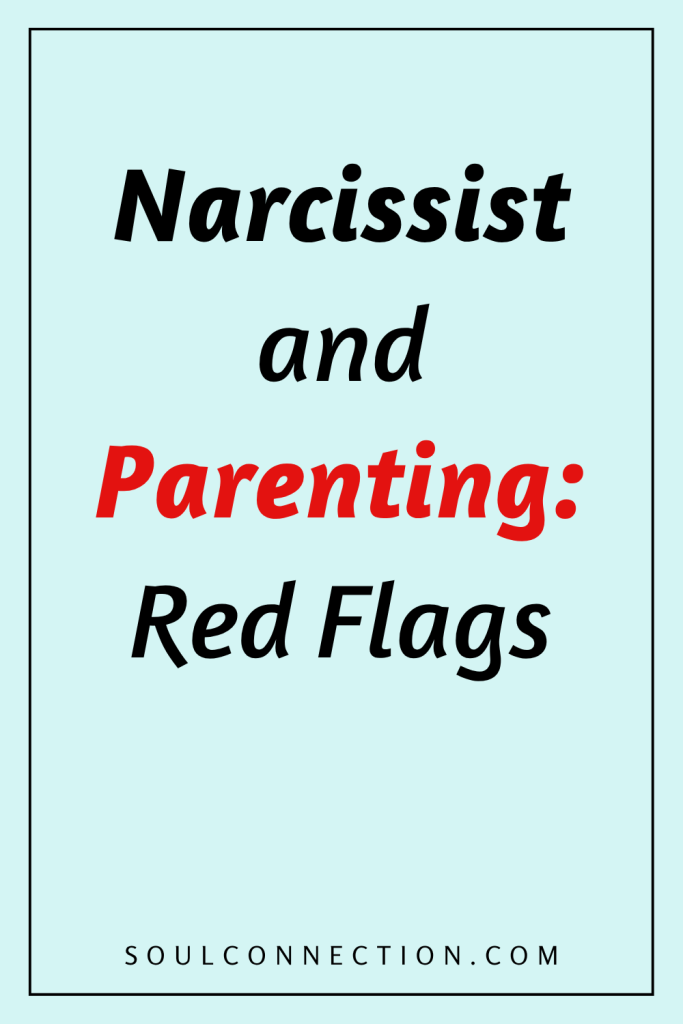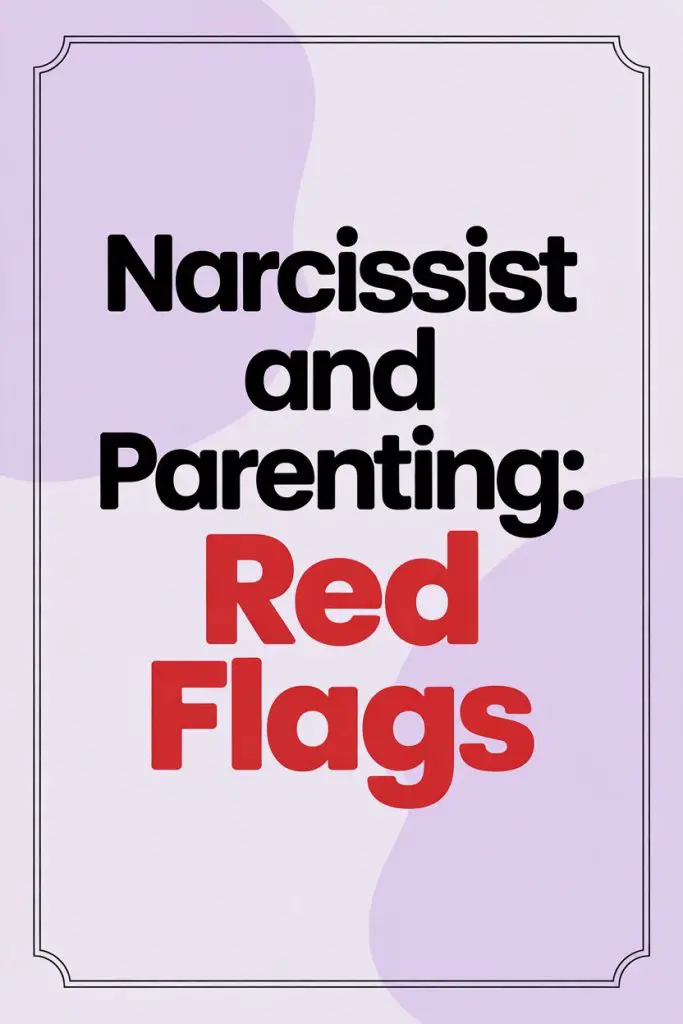If parenting itself isn’t challenging enough, try adding a narcissist to the mix—just for that little extra spice.
Spotting narcissistic traits in a co-parent (or your own parents, for that matter) can feel like looking for a needle in a haystack, except the haystack is on fire and someone keeps telling you the needle is gold.
The impact of narcissistic parenting isn’t just about who gets the last word at the dinner table. These red flags, if left unchecked, can shape a child’s sense of self for life.
Grab your emotional magnifying glass; things are about to get real.
All About Them, All the Time
Every parent has a moment of “Look what I did!” Whether it’s a killer costume for the school play or just managing to keep a houseplant alive, we all enjoy some credit now and then.
What sets apart the narcissistic parent is their relentless and exclusive starring role.
When a child’s achievements, milestones, or even struggles become just another mirror for the parent’s ego, you’re in narcissist territory. Your kid gets a gold star? Out comes the “Well, they get it from me!”
The child’s feelings and experiences exist only as props to elevate the parent’s own self-image.
It’s exhausting. It’s also confusing for kids, who learn that love is conditional on how well they perform (and how good that makes Mum or Dad look).
Empathy on Permanent Holiday
Sympathy cards sell out on Valentine’s Day, but empathy from a narcissistic parent? Sorry, out of stock forever.
Kids might cry, sulk, or try to explain their feelings, but the narcissistic parent responds with a blank stare or—worse—a lecture about how their own childhood was so much more difficult.
Children with this kind of parent learn not to share their feelings, either because it falls on deaf ears or gets used against them later. Emotional connection has left the chat.
Boundary? Never Heard of Her
Healthy families create boundaries the way bricks build a house. Not so with a narcissistic parent—boundaries are merely suggestions, and usually ignored.
This is the parent who reads their teenager’s diary “for their own good,” or hijacks a child’s friendships, making everything about themselves. Expect guilt trips and melodrama if a child tries to claim privacy or independence.
Kids become experts at walking on eggshells, never quite sure who’s in charge of their own lives.
The Praise-Criticism Whiplash
Feedback is important. But when compliments and criticisms fly faster than Wimbledon tennis balls, it’s disorienting. One moment, your child is a genius; the next, they’re a disappointment for not measuring up.
Narcissists keep their kids guessing, and that unpredictability keeps children craving approval while internalizing criticism. Think emotional limbo with a side of anxiety.
The Golden Child and the Scapegoat
Narcissistic parents rarely treat their kids equally. One child gets the “golden child” treatment—showered with praise, held up as the family’s pride. Another bears the brunt of blame for anything that goes wrong.
Sometimes, roles even switch at the drop of a hat.
Sibling rivalry gets supercharged, and kids learn to compare, compete, and question their own worth. A family reality show, minus the commercial breaks.
Manipulation as a Parenting Tool
“Do this for me, or I’ll be so disappointed.” Sound familiar? Narcissists are masters of using guilt, shame, and emotional blackmail to get what they want.
Kids quickly learn that love, affection, and approval are transactional. Emotional strings are attached to every hug, and nothing is ever truly unconditional.
Public Perfection, Private Chaos
Out in the wild (read: family gatherings, social media, the pick-up line at school), narcissistic parents present a flawless image. Their children are well-dressed and well-mannered, and everything looks picture perfect.
At home, the mask slips. Criticism, control, and emotional games replace the sparkling smiles. If your family’s public and private lives feel like two completely different TV shows, you might be living with a narcissist.
Enmeshment or Emotional Estrangement
Narcissistic parents run hot and cold. Sometimes they’re so involved in their child’s life that personal space doesn’t exist (think “my best friend is my seven-year-old”). Other times, they’re aloof, unavailable, and emotionally distant.
Both patterns make it difficult for kids to develop a healthy sense of self. They either grow up feeling responsible for their parent’s happiness, or convinced their feelings just don’t matter.
Gaslighting Is a Family Tradition
Facts become optional when a narcissist is in charge. Kids are told their memories are wrong, their feelings are overreactions, and their perceptions are just plain silly.
If your child constantly doubts themselves, or finds themselves apologizing for things they’re sure they didn’t do, gaslighting might be at play. It’s not just in spy novels, unfortunately.
Never Satisfied, Never Enough
No matter how much a child achieves, it’s “not quite there.” The narcissistic parent always wants more—better grades, more trophies, fancier hobbies—because their child’s success is a direct extension of their own status.
Kids working overtime for a pat on the back end up feeling like hamsters on an emotional wheel, wondering if anyone will ever say “good job” and actually mean it.
The Blame Game
Mistakes? Always the child’s fault. Family issues? Ditto. Narcissistic parents never own up to their failings; it’s much easier to point the finger at someone else—preferably the nearest offspring.
Apologies are rare, and when they do come, there’s usually a “but you made me do it” lurking not far behind.
Playing Favorites with Friends and Family
Narcissists love to divide and conquer. They might pit siblings against each other, compare their child with cousins or friends, or even use grandparents as pawns.
Loyalty is demanded, and alliances shift without warning. It’s emotional musical chairs, and everyone ends up dizzy.
What Can You Do?
Spotting these red flags is a start, but don’t panic. Parenting with or after a narcissist isn’t a lost cause, even if it feels like wrangling wildcats.
Start by trusting your own perceptions. Narcissists are experts at making others doubt themselves, so grounding yourself in what you experience—rather than what you’re told to believe—is crucial.
Help your child name and validate their feelings. This alone will do wonders, even if empathy isn’t coming from the other parent.
Model healthy boundaries: knock before entering their room, respect their privacy, and back up their right to say “no.”
Therapy isn’t just for dramatic movie scenes. Find a good counselor for your child, yourself, or your whole family if possible. Sometimes you need an outside referee when the emotional game gets too rough.
Teach your child that love does not need to be earned, and that making mistakes doesn’t mean they are bad or unworthy. Celebrate progress, not perfection—and do it for real, not for show.
Above all, remember you’re not alone. Narcissistic dynamics love secrecy and shame, but connection (with friends, other parents, or professionals) is the antidote.
Planting Seeds for Healthier Roots
Raising children alongside a narcissistic parent is no picnic, but spotting the warning signs can break the cycle before it runs wild through another generation.
Kids are resilient—even more so with honesty, boundaries, and a good sense of humor (trust me, you’ll need it).
Start small: one empathetic conversation, one boundary set, one “I see you and you matter” at a time.
The spotlight doesn’t need to always shine on one person. There’s enough light for everyone, and your child deserves to bask in it, too.


